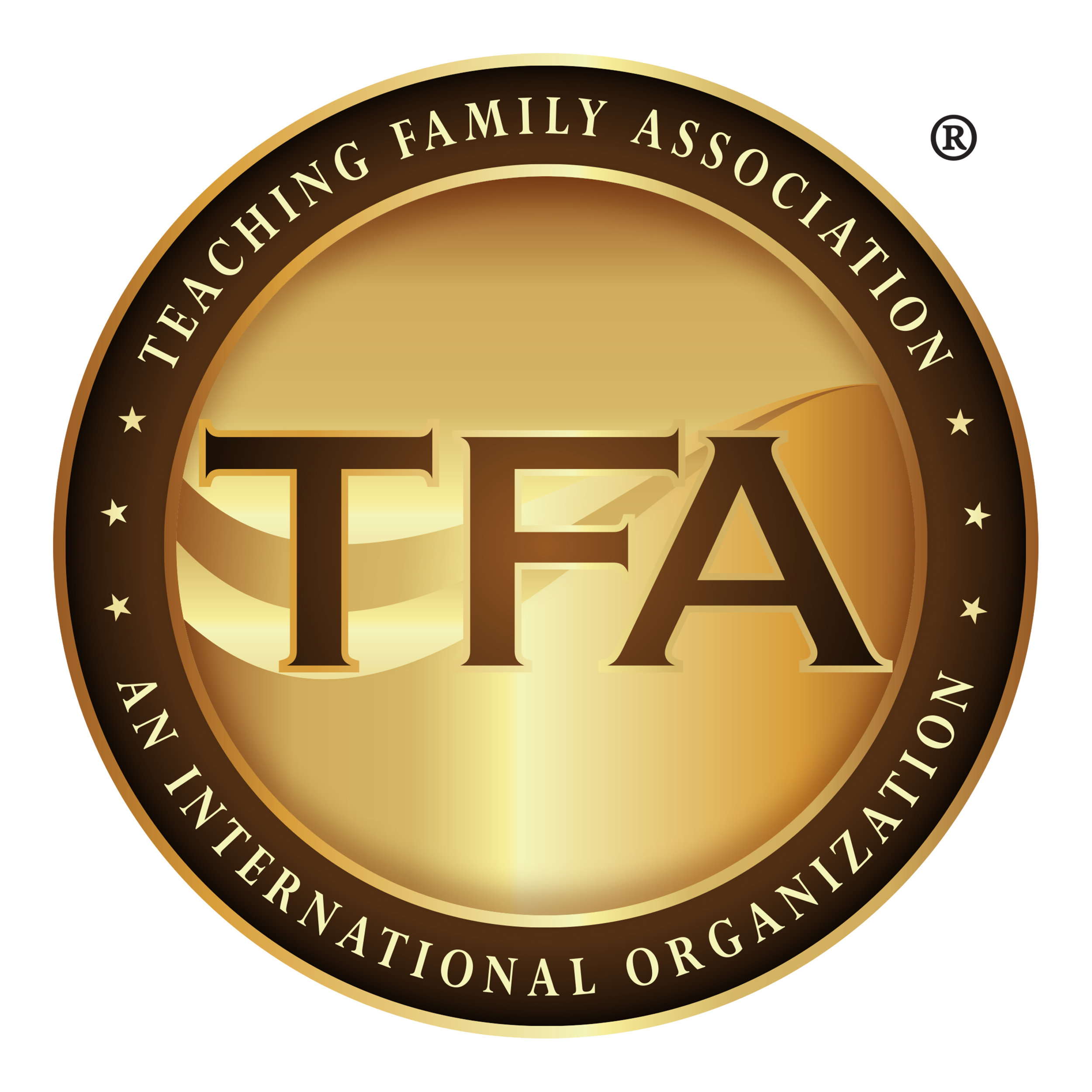The Teaching-Family Model
The Teaching-Family Model (TFM) is a philosophy and practice of care and treatment that prioritizes therapeutic relationships with caregivers as the primary conduit of effective treatment in supportive family-style settings.
Family-style relationships are seen as essential to healthy development of social, relational, and interpersonal skills. The TFM is a strength-based, comprehensive, and trauma-informed model of care that builds positive change while remaining focused on the holistic development of the person served.
The Model is rooted in cognitive behavioral theory and can be used with children, youth, and adults with a range of diagnoses and symptoms, as well as with those who have experienced significant trauma, maltreatment and loss.
Evidence-based & Trauma-informed
The Teaching-Family Model is an evidence-based approach which is fully integrated at both the individual and the organizational level. It provides effective individualized and trauma-informed treatment services to children, youth, adults, and families.
Through peer-reviewed research and clinical practice, the Teaching-Family Model is recognized to be cost-effective, replicable, and highly effective for all participants.
“The Teaching Family Model empowered Thornwell Charter School to view students and Faculty in a holistic light. This approach has not only prepared our students to excel in the classroom, at home, and in the community, but also empowered our Faculty to guide their students towards their full potential. The Teaching-Family Model has truly filled a void in the educational system.”
Jayce Horton, Teaching Family Model Director/Behavioral MTSS Coordinator, Thornwell Charter School, USA
Implementation of the Teaching Family Model: Professionalizing all staff and milieus via a rigorous framework of Integrated Systems and Evaluation for fidelity at practitioner and organizational levels.
Best practice
exceptional Outcomes
high ratings of Consumer and Client Satisfaction
improved Risk Management
Consistent
ACCOUNTABle
increased Staff Competency and stability
professionally certified staff
Fidelity
INDIVIDUALIZED, Person-Centered Services
needs Responsive
systems and Organizational Management
transparent

